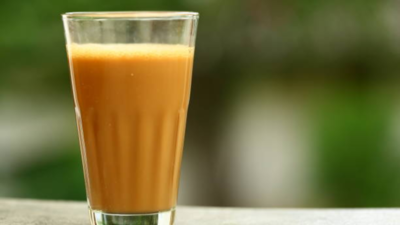
Milk tea is a regular drink for many people, especially in India. But how does milk tea affect the gut? And also, in more ways than one, regular intake of milk tea can have various effects on digestion. For example, based on lactose intoleranceApart from sugar and spices, and the stimulating effect of caffeine, let’s deconstruct how each of these factors plays into digestion.
1. Lactose Intolerance and Gastrointestinal Complaints
Lactose intolerance is a relatively common condition that affects a large percentage of the population, after the age of three to five years, when the enzyme lactase-breaking down lactose-sugar found in milk-naturally decreases. About 95% of the human population becomes lactose deficient after that age. Milk is nutritious, but for people who are lactose intolerant, milk-based drinks like milk tea can cause gastrointestinal problems. Lactose in these individuals cannot be broken down in the digestive system and causes symptoms like diarrhea, abdominal pain, distension, and increased gas—mainly a form of milk intolerance.
This disorder can also disrupt health through the intestinal microbiota, the balance of good bacteria in the stomach. An imbalance of gut flora arising from undigested lactose can cause inflammation and pain in the gut. If these signs appear, then we recommend checking the possibility of lactose-free milk or other alternative milk options that can help prevent gastrointestinal discomfort.
2. Sucrose and spices: Effects on gut health
Most people who drink milk tea use sucrose or spices like ginger, turmeric, and cardamom to make it taste right. Although some spices may have antioxidants and are safe to consume in small amounts, excessive amounts or added sucrose will affect gut health. Specifically, it promotes the growth of more harmful bacteria in the gut and disrupts the balance of the microbiome. It can cause problems like dysbiosis, where harmful bacteria outnumber beneficial bacteria, leading to conditions such as IBS, bloating, and indigestion.
On the other hand, a moderate level of spices like ginger and saffron will prove to be of long-term benefit. They reduce inflammation and aid digestion. It is an antioxidant, and has also been used traditionally for its anti-inflammatory value. All these benefits are only good when taken in small amounts, although too much spice and added sugar can reverse these benefits by causing digestive problems and making the balance of gut microbes unbalanced.
3. Time to Drink Milk Tea
The timing of taking milk tea can also affect digestive health. Most people start their day with a cup of tea and sometimes without breakfast. This is quite bad for the body, especially the digestive system. Taking tea on an empty stomach improves acidity, acid reflux, and digestion. More importantly, tea, depending on the addition of milk and sugar, can cause an increase in stomach acid that can cause heartburn, indigestion, or even gastroesophageal reflux disease (GERD).
Also, drinking multiple cups of tea in one day can cause the problem. In this regard, drinking tea with less food consumption can increase the risk of stomach ulcers which, in some cases, can lead to stomach cancer.
4. Intestinal motility effects of caffeine
Caffeine is present in many forms of tea and can help function as a component in gut health. It can also stimulate intestinal motility, and make some people with motion and diarrhea, which, in a sensitive stomach, can be a problem. While small digestive benefits occur with low levels of caffeine due to the peristalsis it causes – a wave-like movement that pushes food through the digestive tract – excessive amounts of caffeine can overstimulate, causing discomfort, and indigestion can also occur.
For those who consume milk tea every day, only twice a day, it is not strong and preferably not flavored. Tea should be prepared with minimal sugar and milk. If milk is used, the amount can be kept, or better, an alternative such as almond or soy milk can be used. The alternative is easier on the digestive system – especially for people with lactose sensitivity complaints.
5. Consuming Safe Milk Tea To Avoid Intestinal Health
So, to ensure that milk tea will not harm your gut health, you must consume it properly. There is a rule of thumb that drinking more than two cups of tea a day is not recommended, but the best time to use it is after breakfast rather than drinking tea in the morning. Limit excessive amounts of sugar and dairy as they can disrupt the balance of gut microbiota. For a creamier tea, limit the milk or switch to non-dairy milk. In addition to using health-giving spices like ginger and saffron, be careful not to add too much.
Milk tea can be a healthy inclusion in the diet, but the way it is prepared and consumed tends to determine the impact on gut health, especially in cases of lactose intolerance or a sensitive digestive system. Milk-based alternatives to tea should be a last resort; added sugar and spices should be kept to a minimum so that there is a balance of intestinal microflora. Moderate and careful consumption is a good way to allow yourself to drink a cup of tea every day without damaging your digestive system.
(Author: Dr Amol Dahale, Consultant Gastroenterology and Hepatology, DPU Super Specialty Hospital, Pimpri, Pune)




